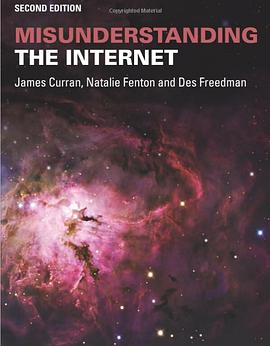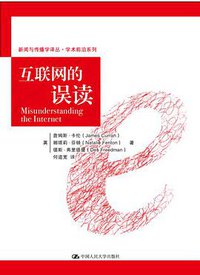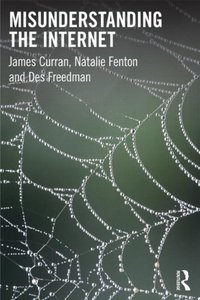Misunderstanding the Internet (Communication and Society)
豆瓣
James Curran / Natalie Fenton …
简介
"Fully updated, the second edition of Misunderstanding the Internet speaks more clearly and critically than ever to today’s hyperbolic claims, utopian and dystopian, about the internet. By presenting a wealth of data that problematises easy claims of democratisation, the authors issue an urgent call to action to embed public values in the internet of the future."
Sonia Livingstone, Professor of Media and Communications, London School of Economics and Political Science
"By updating their authoritative work on the Internet, James Curran, Natalie Fenton and Des Freedman have done scholars, students and concerned citizens an enormous favor. Misunderstanding the Internet remains the single most important book for someone to read to grasp the history and political economy of the digital revolution."
Robert W. McChesney, Professor of Communication, University of Illinois at Urbana-Champaign
"This is a very important book, it offers critical insights to contemporary political and economic power, the role of social media and how mass publics are informed, correcting many false assumptions - an absolute must read for students and academics in social and political sciences, as well as media and communications."
Gregory Philo, Professor of Communications and Social Change, University of Glasgow
"A deliciously fact-driven corrective to Internet hype of all kinds. Highly recommended."
Fred Turner, Professor of Communication, Stanford University
contents
Preface
1. The internet of dreams: reinterpreting the internet
2. The internet of history: rethinking the internet's past
3. The internet of capital: concentration & commodification in a world of abundance
4. The internet of rules: critical approaches to online regulation and governance
5. The internet of me (and my 'friends')
6. The internet of radical politics and social change
Conclusion: The internet we want
Index
前言
一、梦想的互联网:重新诠释互联网
2. 历史的互联网:重新思考互联网的过去
3. 资本互联网:富足世界的集中与商品化
4. 规则互联网:在线监管和治理的关键途径
5. 我(和我的“朋友”)的互联网
6.激进政治和社会变革的互联网
结论:我们想要的互联网
指数


